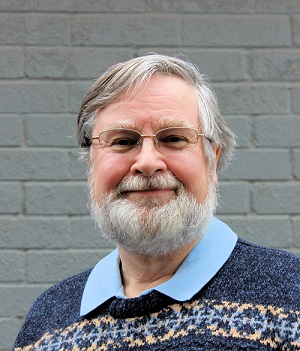

 |
Dr. Paul MarshallRegents Professor of Chemistry |
My research interests include: Gas-phase kinetics of atoms and small molecules; atmospheric and combustion chemistry. Elementary reactions are studied over wide temperature ranges, and the results related to ab initio theoretical calculations.
My research lies in chemical kinetics and molecular dynamics, particularly the measurement and theoretical interpretation of rate coefficients for elementary gas-phase reactions, and combustion and environmental chemistry. Networks of reactions of atomic and molecular radicals control the chemistry of flames. They also control the chemistry of the atmosphere, as well as aspects of laser and interstellar chemistry and chemical vapor deposition.

Dr. Jessie Yuan using the laser photolysis apparatus
A major part of the research involves the investigation of temperature dependences and the mechanisms of these processes. The outcome is a better understanding of reactivity and the details of chemical change in systems unaffected by solvent interactions.
The experiments involve spectroscopic monitoring of radicals at trace concentrations and over wide ranges of temperature (from ambient to flame conditions). Laser methods are employed with fast photo-electric detection to monitor reactions with microsecond time resolution, while infrared studies yield both kinetic and mechanistic information. Large scale ab initio quantum calculations help to interpret the experimental results and are used to predict the properties of reactive intermediates and transition states.
Current research focuses on reactions relevant to the application of ammonia as a carbon-free energy transfer fuel, and on the atmospheric chemistry of halogenated and sulfur-containing species in order to assess their influence on climate change. Theoretical analysis of the potential energy surfaces gives insight into and helps rationalize the temperature dependences, product channels and overall mechanisms of these systems.
The combustion chemistry of sulfur compounds is a topic of continuing interest, together with studies of the reactivity and thermochemistry of metal-containing molecules.
"Kinetic Studies of the Cl + HI Reaction using Three Techniques", J. Yuan, A. Misra, A. Goumri, D.D. Shao and P. Marshall, J. Phys. Chem. A, 108, 6857 (2004).
"Reaction Kinetics of the Addition of Atomic Sulfur to Nitric Oxide", A. Goumri, D.D. Shao and P. Marshall, J. Chem. Phys., 121, 9999 (2004).
"Mechanism and Modeling of the Formation of Gaseous Alkali Sulfates", P. Glarborg and P. Marshall, Combust. Flame, 141, 22 (2005).
"A Computational Study of the Thermochemistry of Bromine and Iodine-Containing Methanes and Methyl Radicals", P. Marshall, G.N. Srinivas and M. Schwartz, J. Phys. Chem. A, 109, 6371 (2005).
"Modified Transition State Theory and Negative Apparent Activation Energies of Simple Metathesis Reactions: Application to the Reaction CH3 + HBr → CH4 + Br", L.N. Krasnoperov, J. Peng and P. Marshall, J. Phys. Chem. A, 110, 3110 (2006).
"Kinetics and Thermochemistry of the Addition of Atomic Chlorine to Acetylene", Y. Gao, I.M. Alecu, P.-C. Hsieh, A. McLeod, C. McLeod, M. Jones and P. Marshall, Proc. Combust. Inst., 31, 193 (2007).
"Kinetic Studies of Chlorobenzene Reactions with Hydrogen Atoms and Phenyl Radicals and the Thermochemistry of 1-Chlorocyclohexadienyl Radicals", Y. Gao and P. Marshall, Proc. Combust. Inst., 32, 351 (2009).
"Kinetic and Modeling Studies of the Reaction S + H2S" Y. Gao, C. Zhou, K. Sendt, B.S. Haynes and P. Marshall, Proc. Combust. Inst., 33, 459 (2011).
"Inhibition of Hydrogen Oxidation by HBr and Br2" G. Dixon-Lewis, P. Marshall, B.Ruscic, A. Burcat, E. Goos, A. Cuoci, A. Frassoldati, T. Faravelli and P. Glarborg, Combust. Flame, 159, 528 (2012).